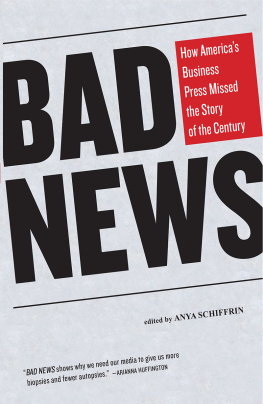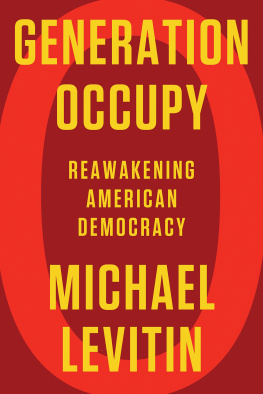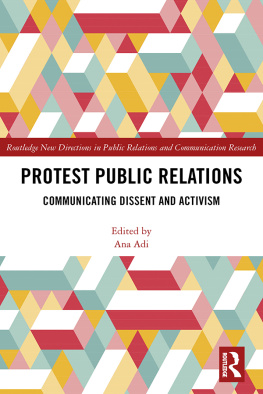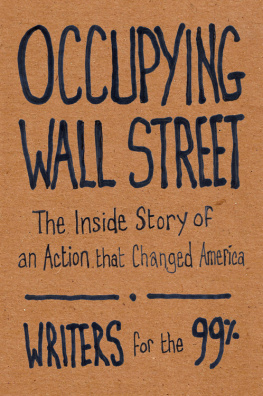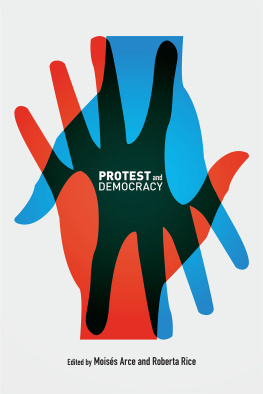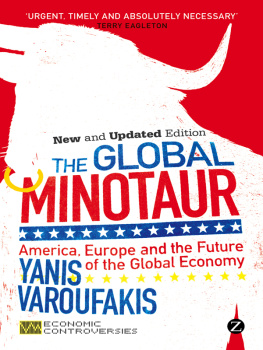Contents
Page List
Guide
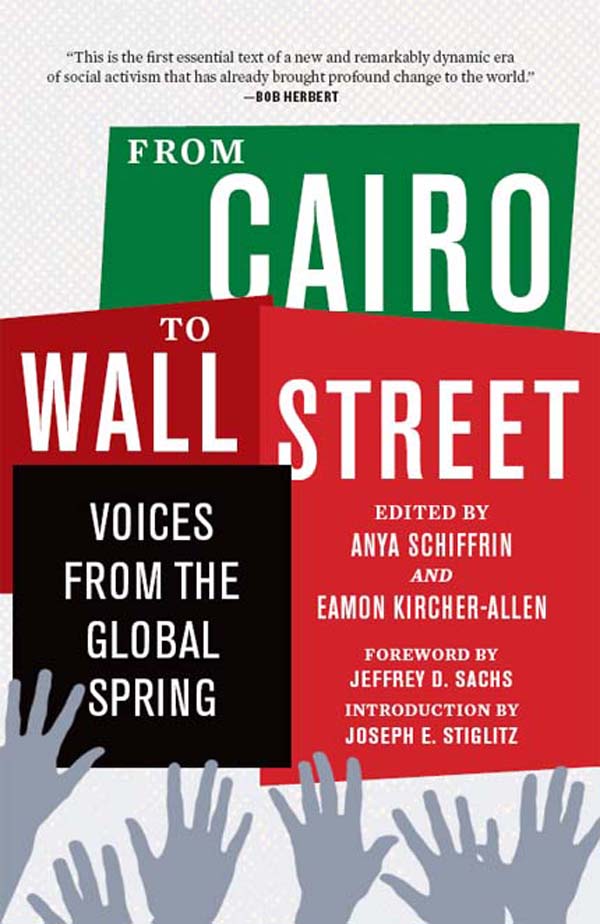
FROM CAIRO TO WALL STREET
FROM CAIRO
TO WALL STREET
VOICES FROM THE GLOBAL SPRING
EDITED BY
ANYA SCHIFFRIN AND
EAMON KIRCHER-ALLEN
FOREWORD BY
JEFFREY D. SACHS
INTRODUCTION BY
JOSEPH E. STIGLITZ

2012 by Anya Schiffrin and Eamon Kircher-Allen
Foreword 2012 by Jeffrey D. Sachs
Introduction 2012 by Joseph E. Stiglitz
All rights reserved.
No part of this book may be reproduced, in any form, without written permission from the publisher.
Requests for permission to reproduce selections from this book should be mailed to Permissions Department, The New Press, 120 Wall Street, 31st floor, New York, NY 10005.
Published in the United States by The New Press, New York, 2012
Distributed by Two Rivers Distribution
ISBN 978-1-59558-837-1(pbk.)
CIP data is available
The New Press publishes books that promote and enrich public discussion and understanding of the issues vital to our democracy and to a more equitable world. These books are made possible by the enthusiasm of our readers; the support of a committed group of donors, large and small; the collaboration of our many partners in the independent media and the not-for-profit sector; booksellers, who often hand-sell New Press books; librarians; and above all by our authors.
www.thenewpress.com
Book design and composition by Bookbright
This book was set in Adobe Garamond
10 9 8 7 6 5 4 3 2 1
For our parents
CONTENTS
Joseph E. Stiglitz
Jawad Nabulsi
Lina Attalah
Mouheb Ben Garoui
Haythem El Mekki
Razan Zaitouneh
Alaa Shehabi
Jos Bellver
Sara Lpez Martn and Javier Garca Raboso
Alejandra Machn lvarez
Jonay Martn Valenzuela
Giorgio Jackson
Fivos Papahadjis
Antonis Voulgarelis
Harry Waisbren
Lisa Epstein
Suresh Naidu
Martin Eirmann and Steven Maclean

Andy Storey
Laurie Penny
D ecember 2, 2011Around the world, young peoplestudents, workers, and the unemployedare bringing their grievances to the public square. Protests have spread throughout the world, from Tunis to Cairo, Tel Aviv to Santiago de Chile, and Wall Street to Oakland, California. The specific grievances differ across the countries, yet the animating demands are the same: democracy and economic justice.
Many factors underlie the ongoing global upheavals. Protests in North Africa at the start of 2011 were fueled by decades of corrupt and authoritarian rule, increasingly literate and digitally connected societies, and skyrocketing world food prices. To top it off, throughout the Middle East (as well as Sub-Saharan Africa and most of South Asia), rapid population growth is fueling enormous demographic pressures. The protests spread from North Africa worldwide. Everywhere the fundamental concerns have been the samepolitical representation and the growing gaps between rich and poorbut local circumstances have of course differed.
The demographic challenge stands out in the North African protests. Egypts population, for example, more than doubled over the course of Hosni Mubaraks rule, from 42 million in 1980 to 85 million in 2010. This surge is all the more remarkable given that Egypt is a desert country, with its inhabitants packed along the Nile. With no room to spread out, population densities are rising to the breaking point. Cairo has become a sprawling region of some 20 million people living cheek-by-jowl, with inadequate infrastructure.
Rapid population growth means a bulging youth population. Indeed, half of Egypts population is under age twenty-five. Egypt, like dozens of countries around the world, is facing the extreme, and largely unmet, challenge of ensuring productive and gainful employment for its young people.
Employment growth is simply not keeping up with this population surge, at least not in the sense of decent jobs with decent wages. The unemployment rate for young people (i.e., those fifteen to twenty-four years old) in North Africa and the Middle East is 30 percent or more. The frustration of unemployed and underemployed youth is now spilling over into the streets.
Yet the problem of high youth unemployment is certainly not confined to the developing world. In the United States, the overall unemployment rate is around 9 percent, but among eighteen- to twenty-five-year-olds, it is a staggering 19 percent. And this number includes only the young people actually at work or looking for work. Many more have simply become discouraged and dropped out of the labor force entirely: not at school, not at work, and not looking for work. They dont protest much, but an astounding number end up in prison.
The problem of youth unemployment reflects much larger and deeper problems of inequality of income, education, and power, problems that are common throughout the world. The young people occupying Wall Street and protesting in hundreds of American cities are channeling sentiments felt very widely throughout American society. Their defining message, We are the 99 percent, draws attention to the way that the rich at the very top have run away with the prize in recent years, gaining great wealth and great political sway while leaving the rest of society to wallow in wage cuts, unemployment, foreclosures, unaffordable tuition and health bills, and for the unluckiest, outright poverty.
Its not just the vast wealth at the top that they are questioning, but how that wealth was earned and how its being used to twist politics and the law. Around 1980, the forces of globalization began to create a worldwide marketplace connected by finance, production, and technology. With globalization came new opportunities for vast wealth accumulation. Those with higher education and financial capital have generally prospered; those without higher education and financial capital have found themselves facing much tougher job competition with lower-paid workers halfway around the world.
Yet inequality of income has also led to inequality of political power, leading to governments that simply dont care enough about the working class and poor to make the needed investments on behalf of the broader society. We have a vicious circle instead. The rich get richer and also more powerful politically. They use their political power to cut taxes and to slash government services (like quality education) for the rest of society. Wealth begets power, and power begets even more wealth.
The worlds labor markets are now interconnected. Young people in countries as diverse as Egypt and the United States are in effect competing with young Chinese and Indian people for jobs. Chinas low-paid, reasonably productive manufacturing workers and high-quality infrastructure (e.g., roads, power, ports, and communications) have set the standard for competitiveness globally. As a result, low-skilled workers in Egypt, the United States, and other countries must either raise their productivity enough to compete at a decent wage or accept extremely low pay or outright unemployment.


